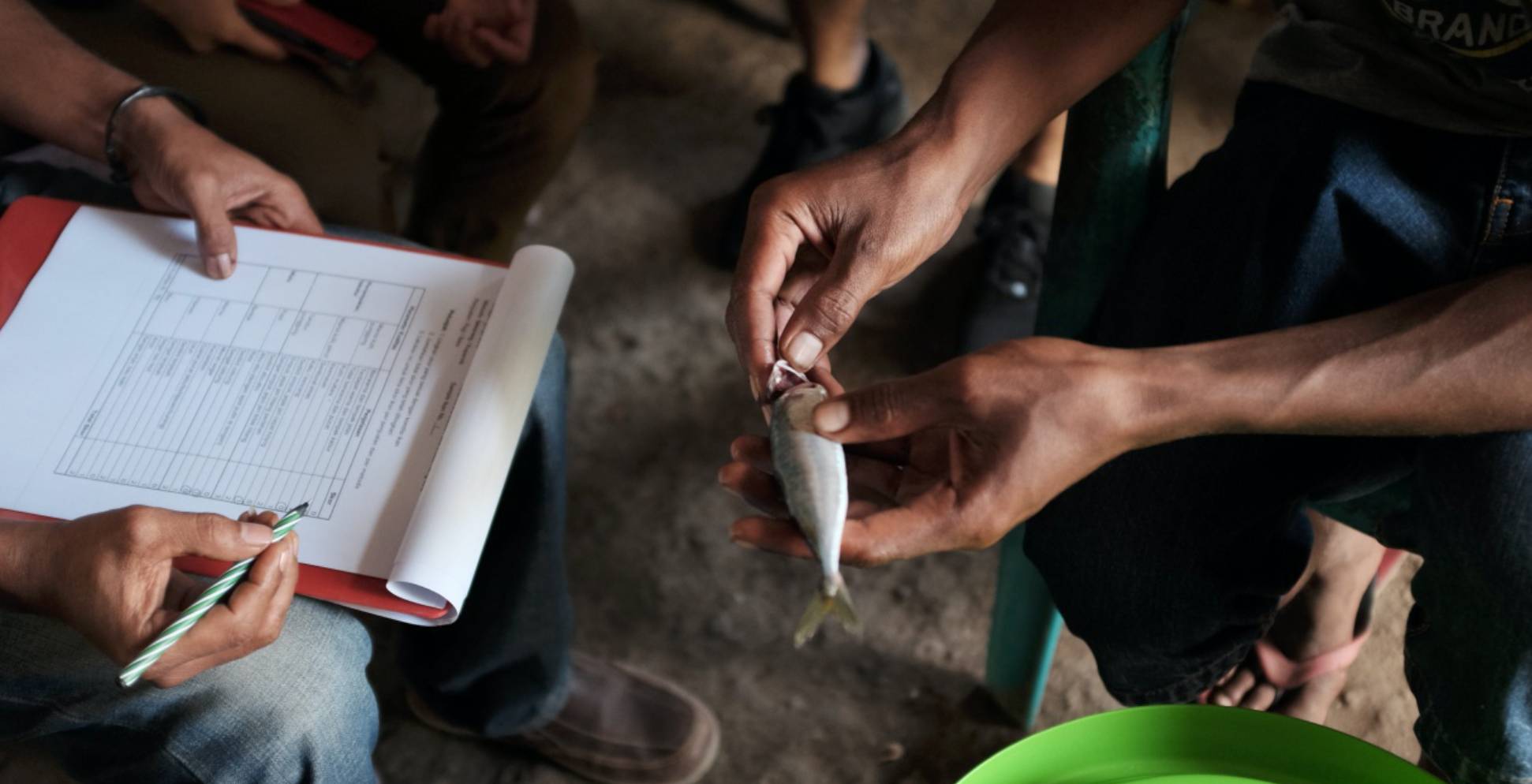
Today the Mata Kail (Mari Kita Kreatif Agar Ikan Lestari) project, funded by the EU SWITCH-Asia programme, highlighted results of efforts to empower young people in sustainable business during a virtual closing event. Over the last three years, Plan International Germany lead-applicant and coordinator of the project, Yayasan Plan International Indonesia (Plan Indonesia) and its partners, Kopernik and Bengkel APPek, have been implementing activities that aim at resolving the economic problems and improving sustainability in East Nusa Tenggara (NTT), the third poorest province in Indonesia.
The Mata Kali project has been working to encourage almost 2,000 young people in Sikka, Lembata, and Nagekeo to start their own businesses in the sustainable fish processing sector. As a result of this initiative, over 1,137 young women and 860 young men in the 15-29 age range were trained and educated on sustainable consumption and production practices in the sector, received help in accessing micro-finance agencies and increased their knowledge in preventing malnutrition and stunting.
"Youth in East Nusa Tenggara need to be empowered and keep on creating innovations to ensure the practice of sustainable business. We not only hope that the quality of life of these youth and the local citizens will improve. We also hope that they will be able to understand and uphold the sustainable consumption and production (SCP) principles in the fish processing sector, which is a sector with a lot of economic potential for the NTT citizens," shared Dini Widiastuti, Director Executive of Plan Indonesia.
The targets of Mata Kail are fully in line with the mission of the EU funded SWITCH-Asia programme. SCP principles are comprised of the environmental sustainability aspect in value chains, utilization of local commodity or resources, as well as reduction of waste that would otherwise harm the environment. These principles create economic improvements, while at the same time respond to current environmental challenges.
Vincent Piket, Ambassador of the European Union to Indonesia and Brunei Darussalam recognized the contribution of Mata Kail to sustainable development, job creation, poverty reduction and a responsible use of natural resources in the region.
Through the SWITCH-Asia Mata Kail project we have promoted sustainable consumption and production principles. Local entrepreneurs in the fisheries sector have gained a better understanding of how sustainability can help grow their companies for the long run. The project has also unlocked micro financial support for young entrepreneurs. I also think that the project has developed a partnership between government and private sector to encourage the practices of sustainable production and consumption in East Nusa Tenggara.
Plan Indonesia and its implementing partners have introduced a set of technologies that can improve young people and local residents’ economic situation and also help them preserve the environment. Among these technologies are the cool box, an insulated box with ice gels, which has a larger capacity and can preserve captured fish longer than traditional boxes—while also helping reduce the use of plastic wrappers and Styrofoam. In addition, kinetic shredding machines can help process a larger amount of fish without polluting the environment and solar-based drying houses can aid the seaweed drying process, even during the rainy season, while minimizing the risk of contamination during this process.
The project also encouraged the local government of Sikka and Nagekeo Districts to integrate the sustainable consumption and production (SCP) agenda in its local development programme. Their commitment to follow this agenda was announced during the Mata Kail National Conference, which was held on December 15, 2020.
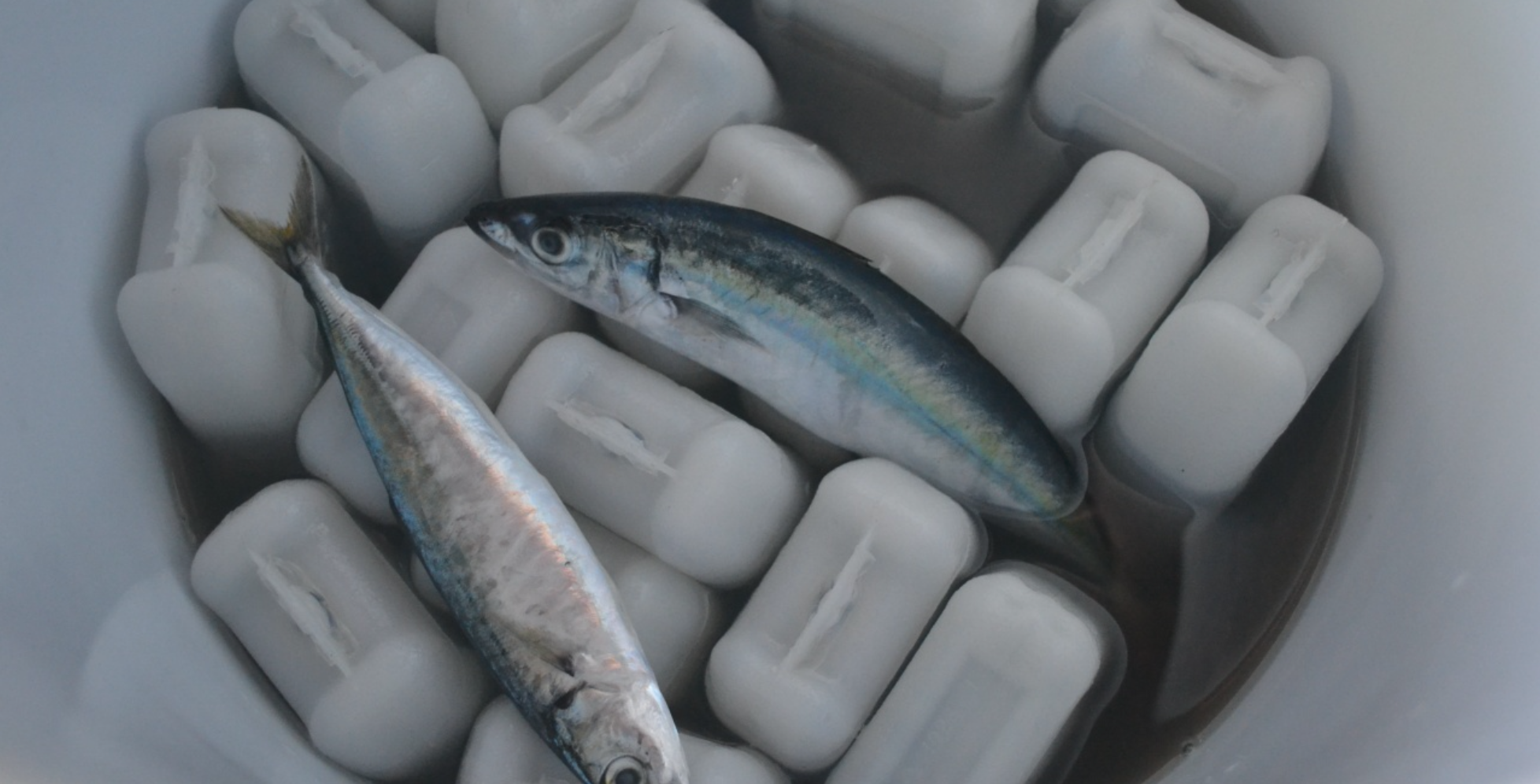
Cooling solutions using reusable gel packs with insulated bucket (Image credit: Sania Saraswati, Kopernik)
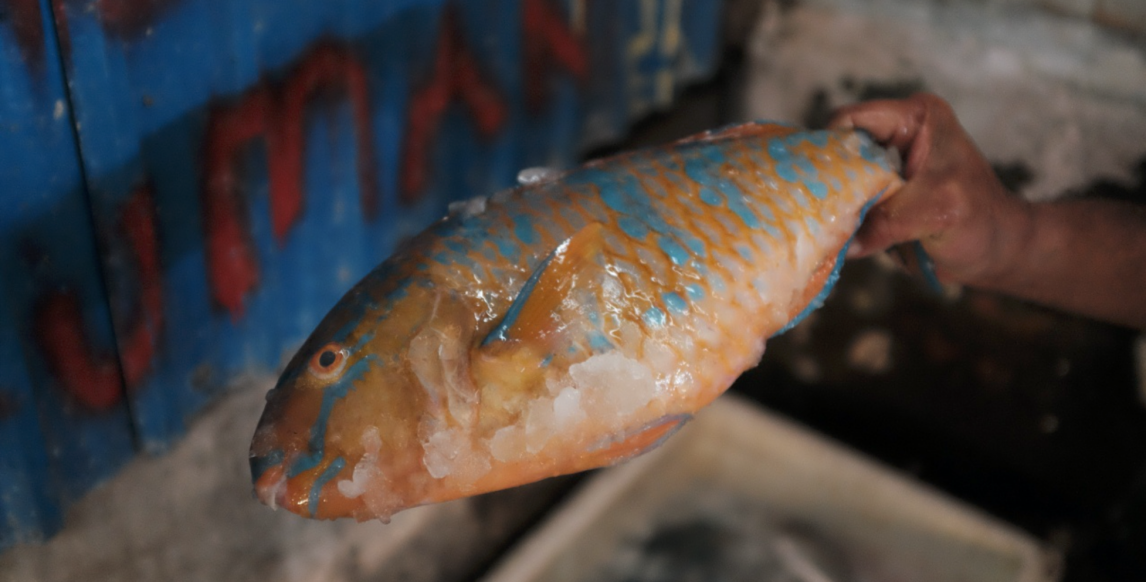
This parrotfish is well-preserved. This is visible through the stiffness and clear eyes - sensory parameters (Image credit: Riesa Putri, Kopernik)
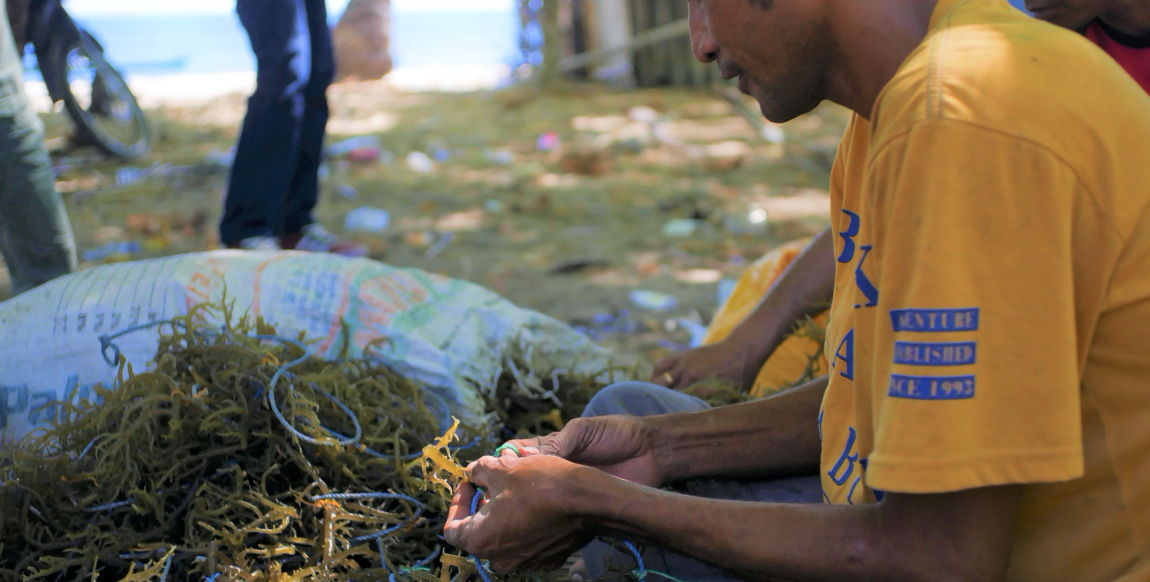
A farmer tying seaweed seedlings on a rope (image credit: Cokorda Suryanata, Kopernik)
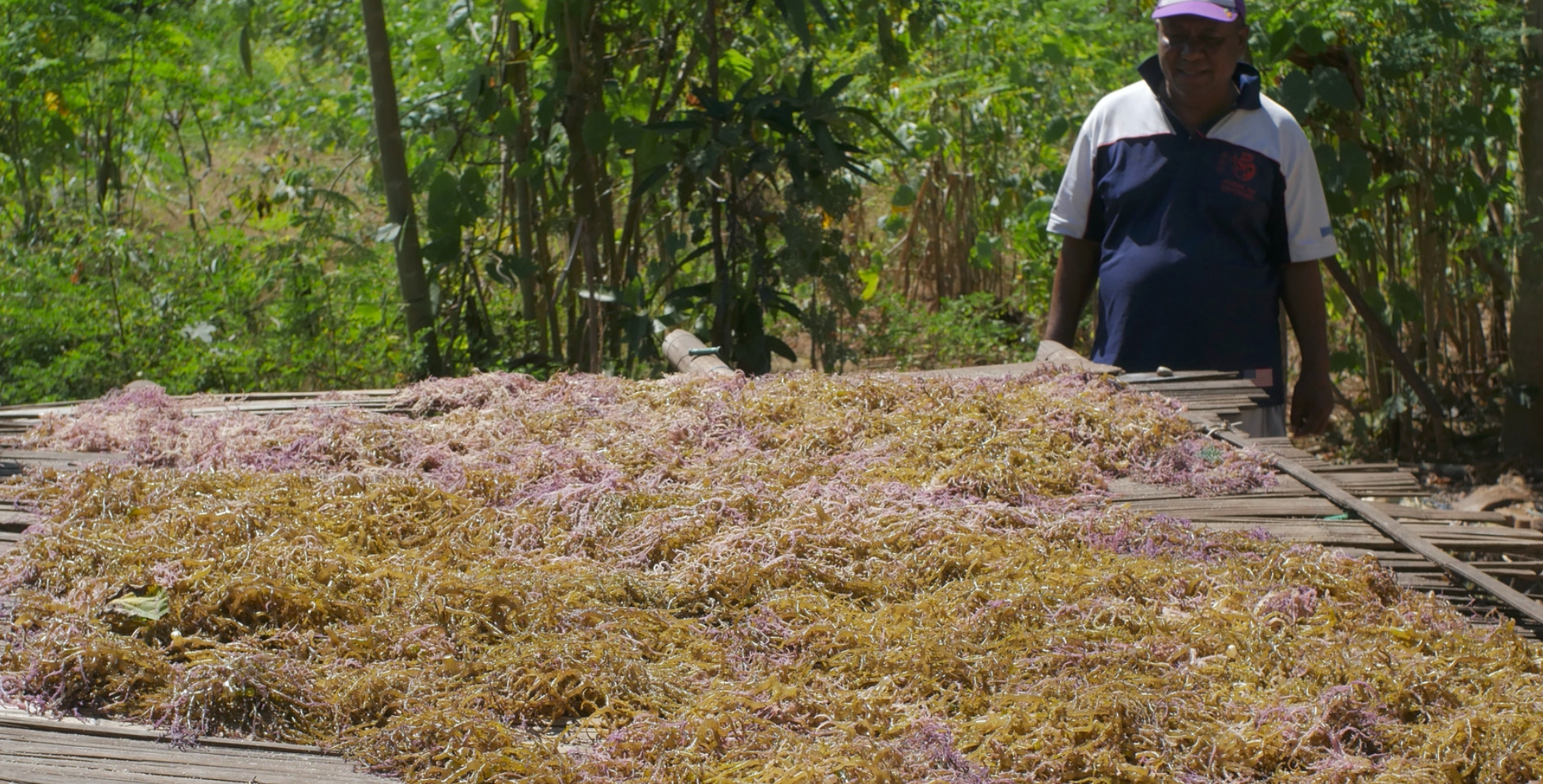
Only a small number of farmers use para-para or an elevated rack to dry their harvest which provides better protection against contaminants (image credit: Cokorda Suryanata, Kopernik)
Videos
- Sikka: https://www.youtube.com/watch?v=A6vGq_KALO4
- Nagekeo: https://www.youtube.com/watch?v=UyWLjBerIP4
- Lembata: https://www.youtube.com/watch?v=hUnxA3LrhIA
Media Coverage
Delegation of the European Union to Indonesia and Brunei Darussalam (EN)
Delegation of the European Union to Indonesia and Brunei Darussalam (Bahasa Indonesia)
Yayasan Plan International Indonesia (Plan Indonesia) EU-Indonesia Cooperation 2020: Mata Kail Confidence to Change
For more information about this project:
Intan Cinditiara (Olla)
Media and Communication Manager
Yayasan Plan International Indonesia
Tel: +62 818 928764
Masajeng Rahmiasri (Ajeng)
Program Communication Specialist
Yayasan Plan International Indonesia
Tel: +62 817 004 0274
Banner photo credit: Riesa Putri, Kopernik


